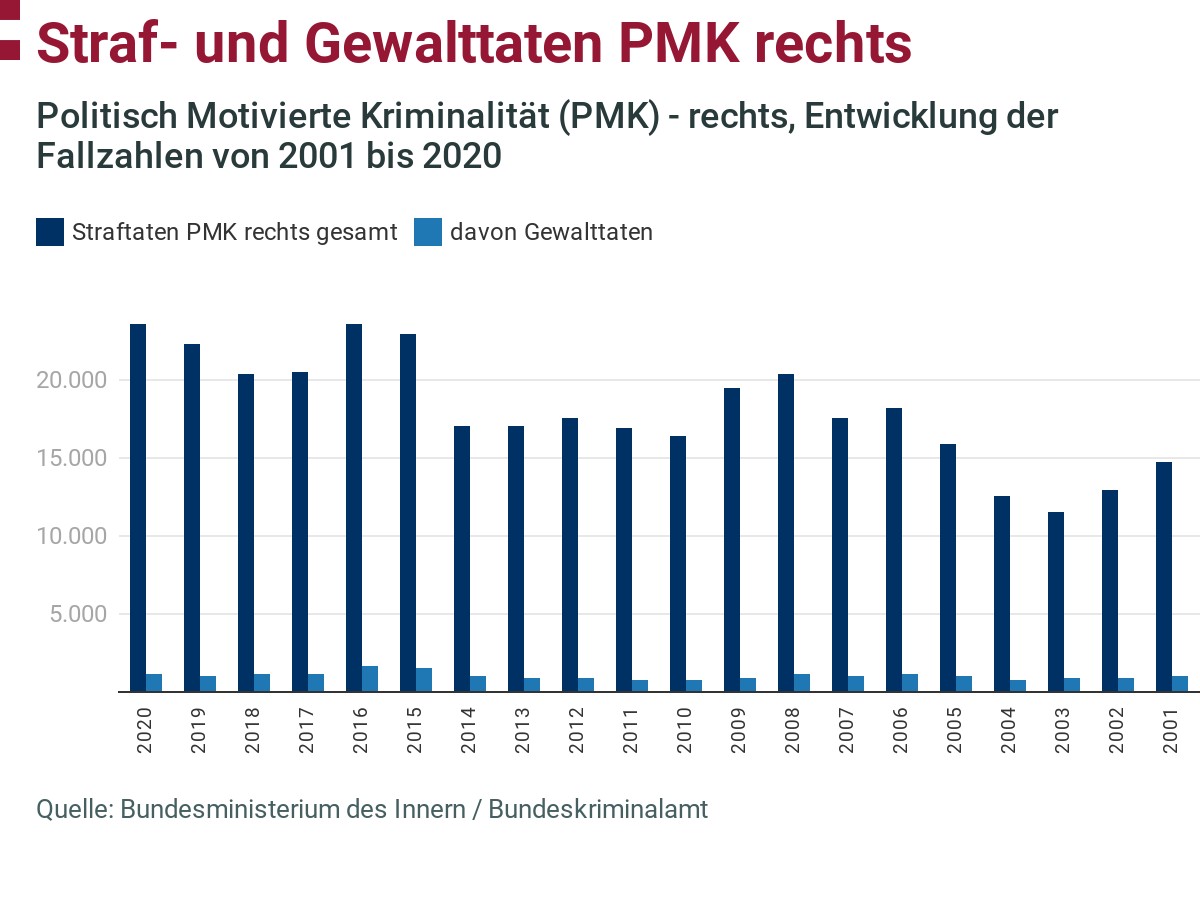Abstract
The Bundeskriminalamt (BKA; the Federal Bureau of Investigation) has
been keeping statistics of right-wing violence since 1990, the year when
Amadeu Antonio, a contract worker originally from Angola, was murdered
in Eberswalde by a right-wing mob. In 2001, the BKA introduced the
category of “Politisch Motivierte Kriminalität” [PMK-Politically
Motivated Crime], which also encompasses “PMK-rechts” [politically
motivated crime from the right] and “PMK-links“ (politically motivated
crime from the left). Crimes are seen as politically motivated from the
right when the cause of the offense is based on völkisch nationalism,
racism, social Darwinism or National Socialism. They include violent
offenses, such as assault, arson, causing an explosive device to
explode, breach of the peace, manslaughter and murder. The majority of
PMK crimes are so-called propaganda offenses, violations of sections 86
or 86a of the German Criminal Code, which prohibit the dissemination of
propaganda material or the use of symbols of unconstitutional
organizations. These cumulative statistics highlight the increase in PMK
offenses since the introduction of the category in 2001. This includes
the 2020 terrorist attack by a far-right extremist in Hanau who murdered
eleven people and injured five in a shooting spree targeting a bar and a
kiosk in Hanau, near Frankfurt, Hesse, Germany. Although the PMK
category is more comprehensive than previous statistics tracking
right-wing extremism, anti-racist interest groups such as the Amadeu
Antonio Foundation and journalists have pointed out that not all violent
crimes committed by right-wing extremists are included in these
statistics.
